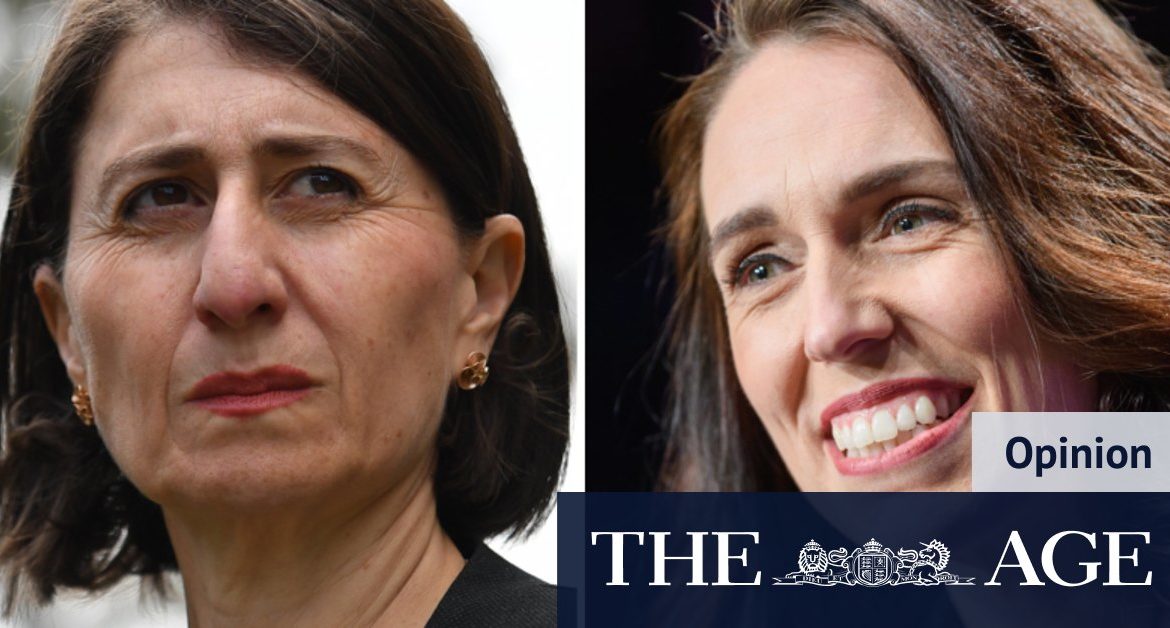Loading
Through it all, Berejiklian kept steady, acknowledging failures and addressing them. She has ended the year strong, a model of “proportionality”, to use her word.
NSW has developed systems that the rest of Australia – indeed the world – should be emulating. Former chief medical officer Brendan Murphy points to many years of health investment in NSW, which has embedded public health units in all the local health districts. The decentralised health system has supported a world-class local test and trace team. That system is supported by investment in digitised government services under the umbrella of Services NSW, which quickly developed a QR code scanning app that has been adopted by many businesses. NSW has kept transmission in check with these systems while carrying a much heavier burden than other states in accepting and quarantining half of all returning travellers, the greatest source of new transmission risk.
And that’s just the health aspect. The NSW economy has also remained largely open and the NSW government has managed to prosecute an economic reform agenda that will help the state recover from the COVID-recession.
So there are plenty of plaudits to go around. But more importantly, there is an important lesson about politics that all this good government can teach us.
Loading
The NSW government has been successful in creating a sensible and measured response in the face of adversity because it has achieved a healthy relationship between the competing internal party forces and egos.
The Deputy Premier of NSW, John Barilaro from the National Party, has sidelined himself by trying to play adversity politics over koalas during the pandemic. Meanwhile, the Premier and her Treasurer, Dominic Perrottet, have strengthened a cross-factional alliance between the conservative and moderate wings of their party, that has delivered political stability and, more importantly, good policy. Rather than white-ant his Premier, as too often happens in politics, Perrottet has opted to take the high road and demonstrate his ability to propose and effect a positive reform agenda. He has also consistently argued for balancing risk, so that the “cure is not worse than the disease”. Perrottet’s influence has ensured that NSW has resisted the urge to shut down when there are blips in the infection numbers.
The Berejiklian-Perrottet team is an illustration of the strength of what former prime minister John Howard once referred to as the “broad church” of the Liberal Party in action. He was referencing the balance between classical liberals and conservatives, which delivers a cautious pace of progress that Australians have repeatedly rewarded at the ballot box. This NSW alliance doesn’t cut as neatly along those ideological lines in policy debates, but it has demonstrated the principle of better outcomes through constructive tension. Other ministers have also notably weighed into public debate without triggering claims of cabinet dysfunction: Minister for Planning Rob Stokes disagreed publicly with the Treasurer’s architectural hit list; Environment Minister Matt Kean raced out ahead of the broader Liberal Party on climate action and was tempered within the party but not censored or censured.
In another field of endeavour, we might call it good teamwork. It is undoubtedly an outstanding example of brave, consultative and collaborative leadership.
It would at this point be possible to compare and contrast to other state governments, but in the spirit of Christmas charity it is perhaps better not. Suffice to say, that NSW has produced a leader who runs a state more populous than the nation of New Zealand, who has a much greater claim to Jacinda’s popularity crown.
Parnell Palme McGuinness is managing director strategy and policy at strategic communications firm Agenda C. She has in the past done work for the Australian Liberal Party.
Get our Coronavirus Update newsletter
Stay across the news you need to know related to the pandemic. Sent Monday and Thursday. Sign up here.
Parnell Palme McGuinness is managing director strategy and policy at strategic communications firm Agenda C.
Most Viewed in National
Loading







